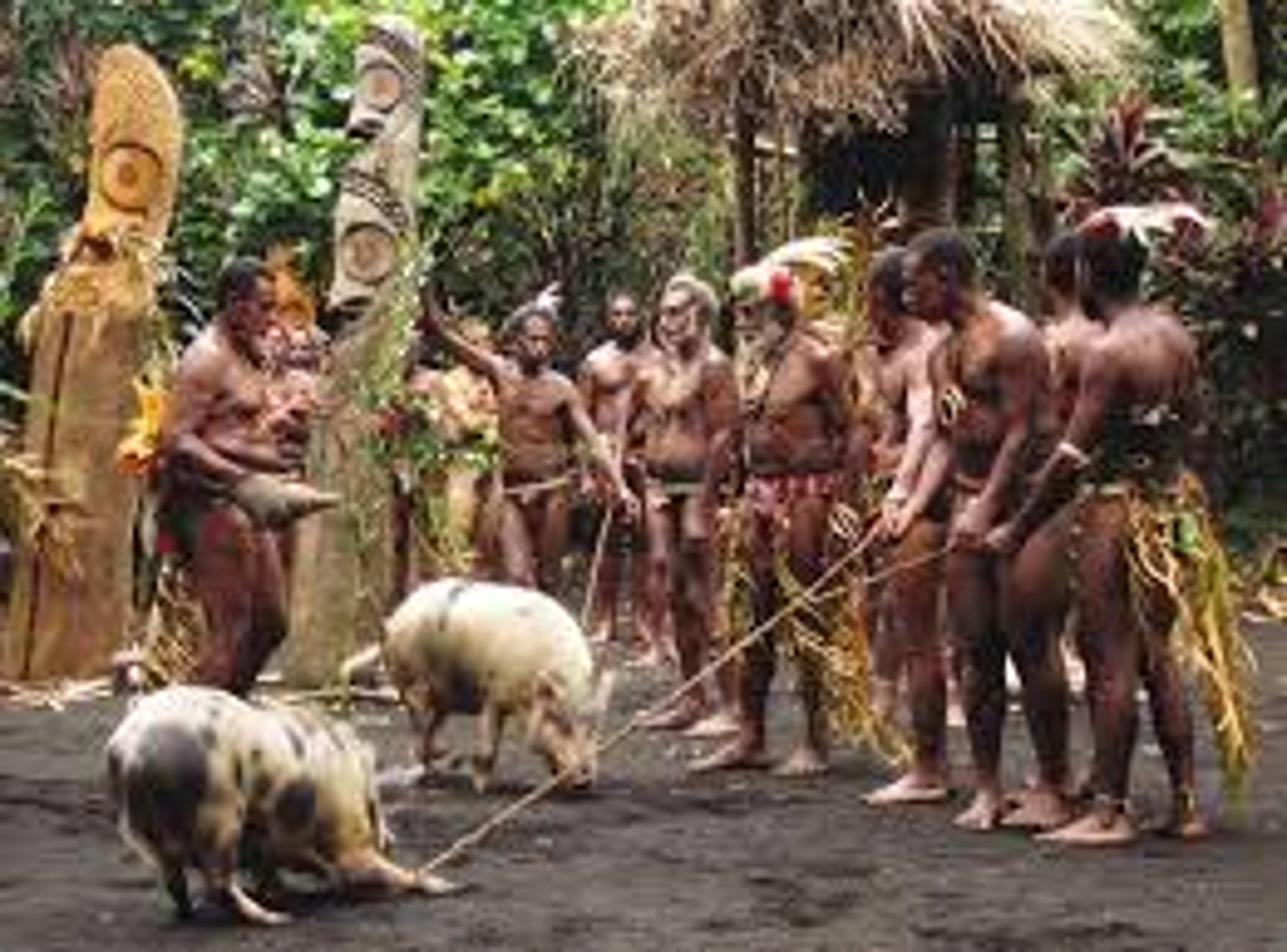

From left, United Nations secretary-general Antonio Guterres, PIF chair and Tonga Prime Minister Hu'akavameiliku Siaosi 'Ofakivahafolau Sovaleni, and PIF secretary-general and former Nauru president Baron Waqa in Nuku'alofa.
Photo/Joseph Safiti
Where to next for the Pacific Islands Forum?
Canterbury University's pro vice-chancellor Steven Ratuva discusses the outcomes of the regional leaders meeting in Tonga last week.



Holiday Classics: The sports films that bring families together
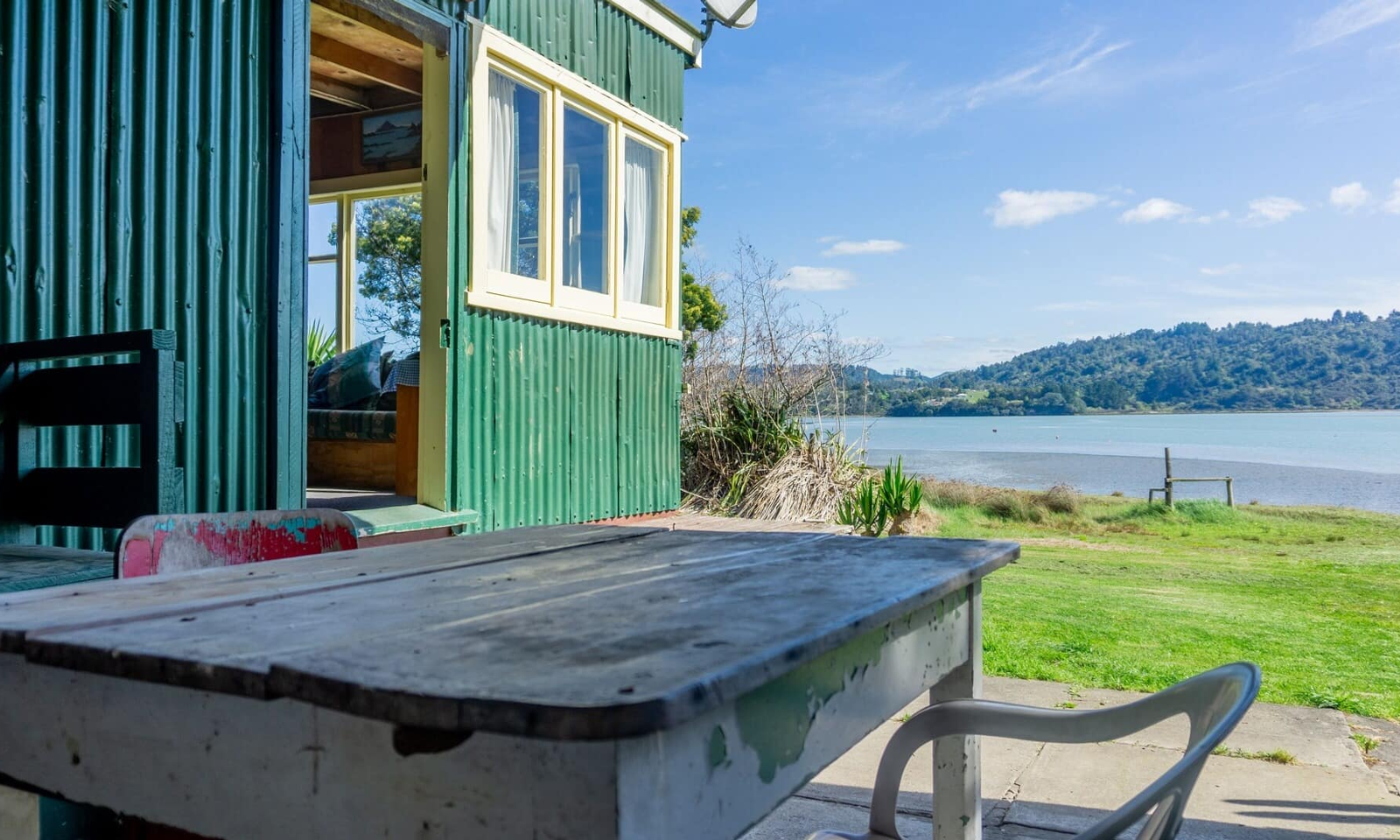
Memories over miles: South Aucklanders share their favourite holiday getaways



Ancient DNA shows how Pasifika carried pigs across the ocean

Holiday Classics: The sports films that bring families together

Memories over miles: South Aucklanders share their favourite holiday getaways

The Pacific Islands Forum wrapped up in Tonga last week, with policing, regional security, climate change, and the New Caledonia crisis, among the talking points for the PIF.
A communiquē released following the leaders' retreat confirms they advocate a vision of proactive diplomacy.
But political sociologist Professor Steven Ratuva thinks the PIF summit could have been much more proactive when dealing with the civil unrest in New Caledonia.
The PIF has agreed to deploy a Pacific-led mission to New Caledonia, in line with the request of its government, and despite a delay to an earlier planned tour.
“There's a danger there, while New Caledonia deserves to be in the Forum, it's just that France might use that as a Trojan horse to have its fillies within the Forum and influence the political narrative of the Forum," he told Pacific Mornings' William Terite.
Watch Professor Steven Ratuva's full interview below.
“So yeah, that is very, very important for the Forum to send a team to New Caledonia. But the question is, what are the systems of reference? How will they influence the process? And how will they connect with the Kanaks who've been fighting for independence for a long time?”
The PIF was given the green light in early August for the New Caledonia mission ahead of the leaders' meeting in Tonga.
The fact-finding mission was then deferred by New Caledonia’s pro-independence President Louis Mapou due to differences between Paris and the local government.
France’s special envoy to the Pacific, Veronique Roger-Lacan, told PMN News a lack of consensus within PIF resulted in the delay of a Troika-led mission to the French territory, a comment Ratuva says reinforces the French arrogance.
“They want to use the Indo-Pacific framework as a means of, you know, entrenching themselves. And so they have been pushing back on the independence movement and the Noumēa Accord.

The key figures in the New Caledonia crisis: French ambassador to the Pacific, Veronique Roger-Lacan, New Caledonia's pro-independence President Louis Mapou, and French President Emmanuel Macron. Photo/supplied
“That was supposed to gradually move towards the independence of the Kanaks in New Caledonia and that has basically been stopped by the French. So they're doing everything possible to derail the independence process in New Caledonia.”
Other issues discussed at the Nuku'alofa summit included the Pacific Policing Initiative, proposed by Australia, with a budget of more than $800 million.
The PIF also welcomed Australia's support for a police training facility in Brisbane and a "Pacific Police Support Group" that can be deployed to Pacific nations.
Ratuva says such initiatives can not hide behind the geopolitical interest contestation with China.
“China's been trying to do a similar thing in the Pacific through its police aid to the Solomon Islands. So suddenly, Australia is using that as leverage because the police equals security and sovereignty.
“So if you're able to control the police operations, then you also have some say in the security framing of those countries, as not many countries in the region have militaries, but all of them have police forces.
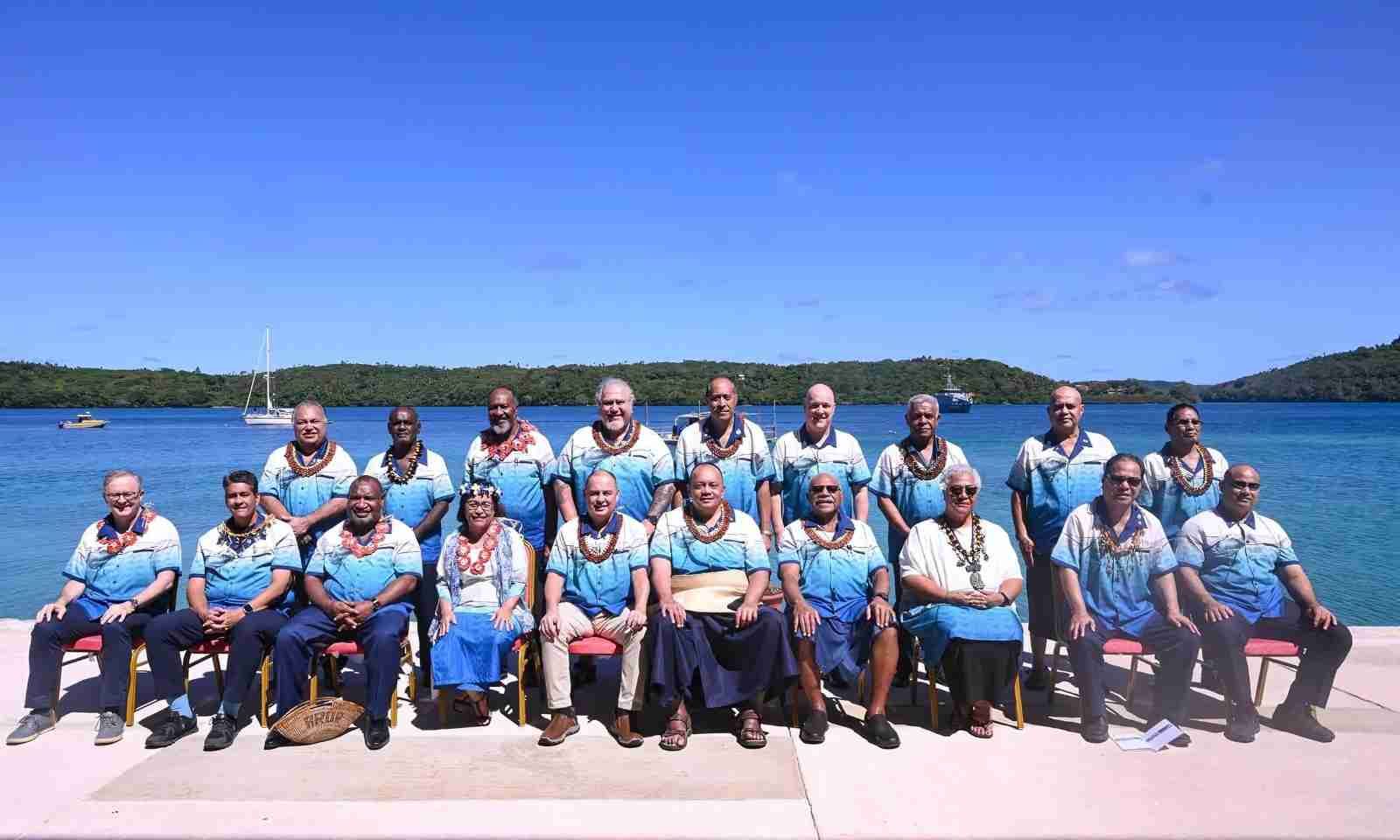
Pacific Islands Forum leaders on retreat in Vava'u. Photo/PIF
“Australia has a grand vision, which ultimately has some geopolitical underpinnings behind it.
"In fact, Australia has been involved in police reform in the Pacific for a long, long time. But it just had to step up this time round.”
China’s ambassador to the Pacific, Qian Bo, was furious after the PIF Secretariat reportedly released the final communique on Friday, which included a section saying that the leaders had "reaffirmed" ties with Taiwan. The statement has since been removed.
The debacle, Ratuva says, shows that Pacific Island leaders are playing a game to see how they benefit from both sides.
“Australia's been trying to tell the Pacific Island nations, ‘can you please move away from China?’ They nod their head, but they do exactly the opposite.
“So they engage with China as well. So whether it's Fiji or Sāmoa, these are sovereign states, and they have the right to choose who their partners are.
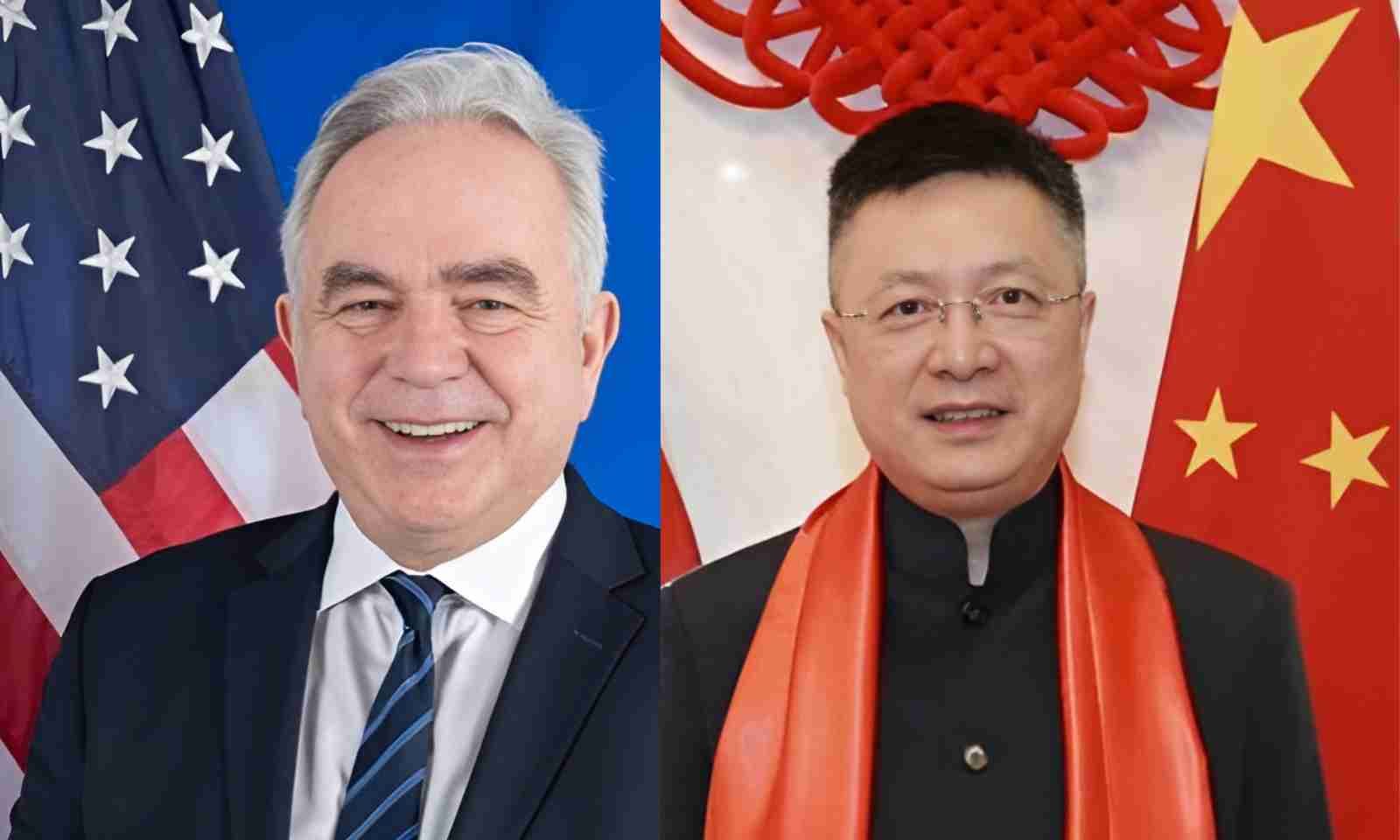
United States' deputy secretary of state, Kurt Campbell and China's special envoy to the Pacific, Qian Bo, attended the Tonga summit. Photo/supplied
“The same way that Australia, New Zealand, and the United States are sovereign states, and they have the right to choose who their partners should be, rather than being told in a rather neocolonial way, ‘you must choose this against that’.
“So it's a game of chess. It's a game of contestation, of leveraging against each other. And the Pacific Island states, through the forum, sometimes on their own, are able to position themselves and benefit from that as well.”
Along with the growing geopolitical interest within the Pacific, climate change continues to be the biggest crisis facing the region including the Resilience Facility which the leaders agreed will be based in Tonga.
Ratuva says funders of the Climate Resilience Facility such as the US, Saudi Arabia, and Australia continue to contribute the most to climate change.
“Climate has become a political capital, which powers use as a means of generating support. But certainly it is significant in terms of a security threat to the region, to the well-being of the region, to health, to economic development, to people's culture.”
When looking back home to New Zealand, Ratuva says Pacific leaders are "probably still in shock" over New Zealand’s oil and gas exploration plans.

Former Forum chair and Cook Islands Prime Minister Mark Brown and wife Daphne in Nuku'alofa. Photo/Joseph Safiti
“The statement by the Minister for Foreign Affairs that human-induced climate change doesn't exist, actually shocks them even further.
"I think there's still a state of shock. At the same time, they're trying to figure out what's the next step as far as New Zealand's concerned.
“In their hearts, New Zealand's close to them because of cultural connection with Māori and the big Pacific Island population. New Zealand is very much an extension of the Pacific.”
When it comes to the future of PIF, Rautva says it’s evolving and he hopes that the 2050 Strategy, which outlines a vision for the sustainable development of the Pacific region, will be a blueprint for the future.
“It depends very much on how it is going to be implemented, how it's going to be framed, how it's going to be understood by the people, how it's going to trickle down to the actual policies on the ground because the previous original frameworks have not worked.
“So we hope it's not just another wishful thinking, forward-looking, but a piece of paper which lacks coherence and viability in terms of practical aspects on the ground."
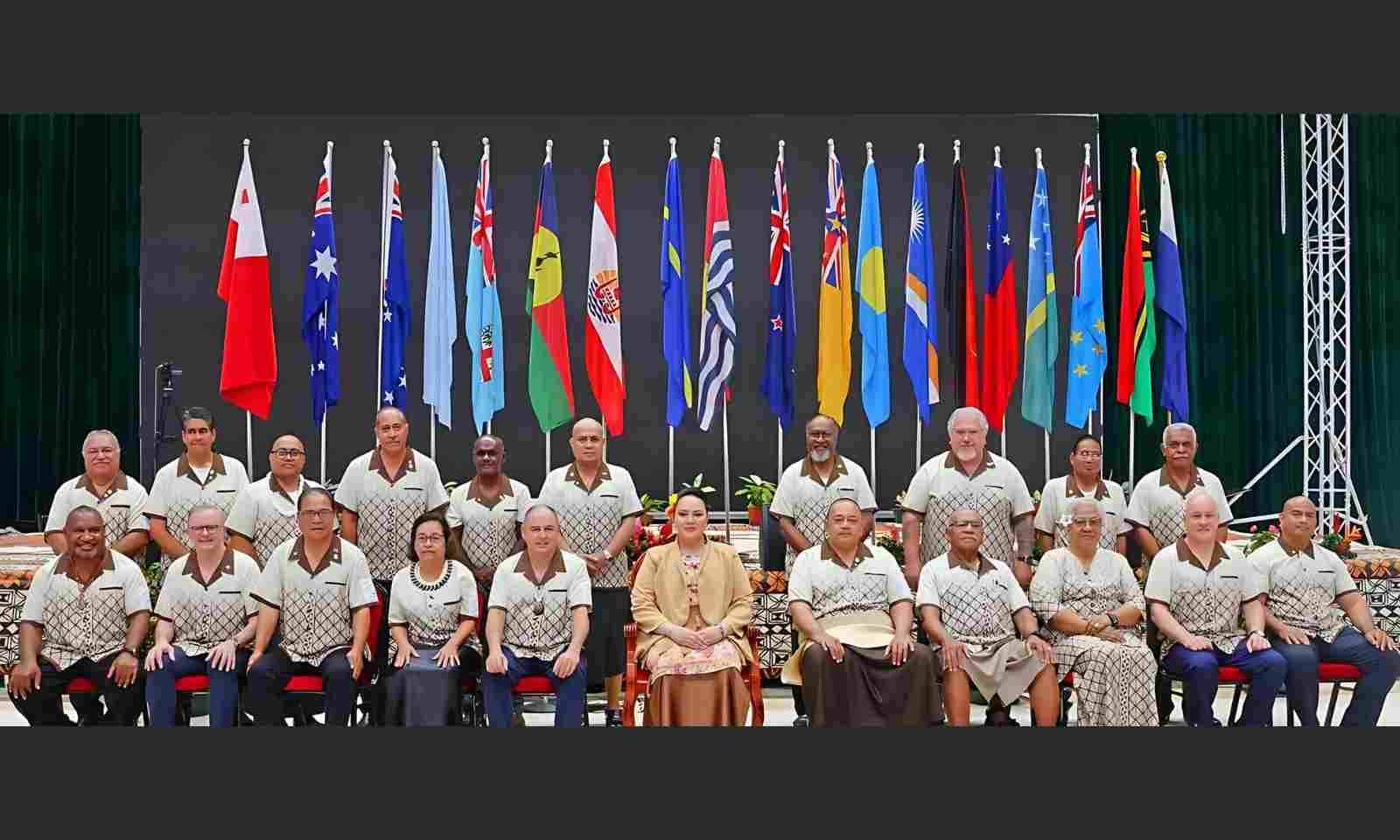
Pacific Islands Forum leaders with Tongan Princess Angelika Lātūfuipeka Mata'aho Tuku'aho. Photo/Joseph Safiti